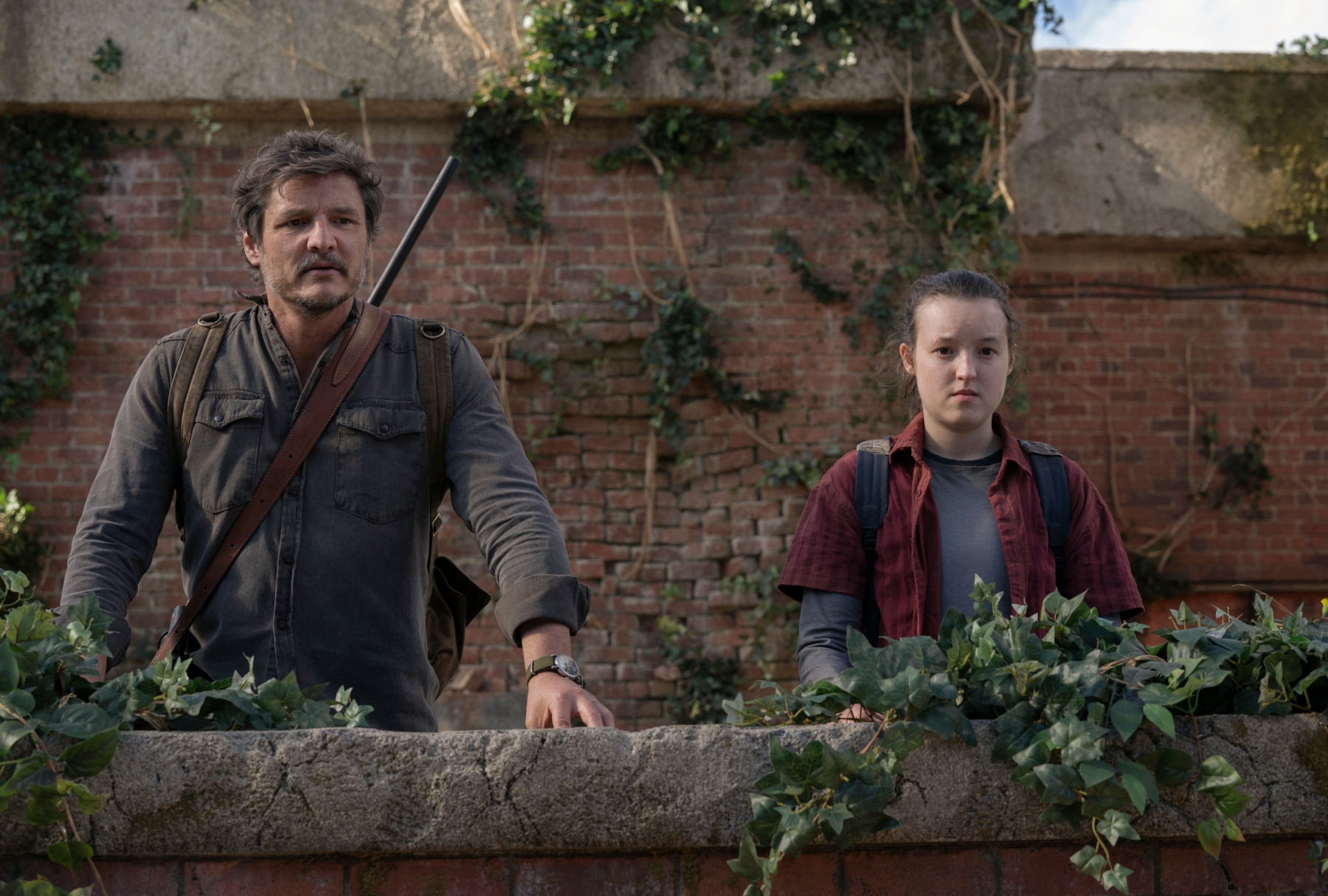“Sometimes, when you love something unconditionally, logic goes out the window and you will do really horrible things to protect the ones you love.”
This is how Neil Druckmann sums up “The Last of Us” during a virtual press conference to discuss the finale.
Love, he says, the impetus driving the video game and the show he co-created with Neil Mazin, and the reason he suspects their adaptation succeeded where others fell short. In creating the game his and his team’s main focus was, how can we make the player feel the unconditional love that parents feel for a child, along with “the worry and fear and love and joy that can come with it?”
He and Mazin answer this by showing the circumstances surrounding Ellie’s birth in “Look for the Light,” the season finale that also closes this chapter with Joel (Pedro Pascal) saving Ellie (Bella Ramsey), ransoming his heroic image to do so.
The finale also holds a valentine to devoted gamers in the form of Ashley Johnson, the actor who originally voiced Ellie in the video game, on the show playing Anna, the mother Ellie never knew. Originally Druckmann intended Anna’s story to be an animated short or another game, but those deals fell apart.
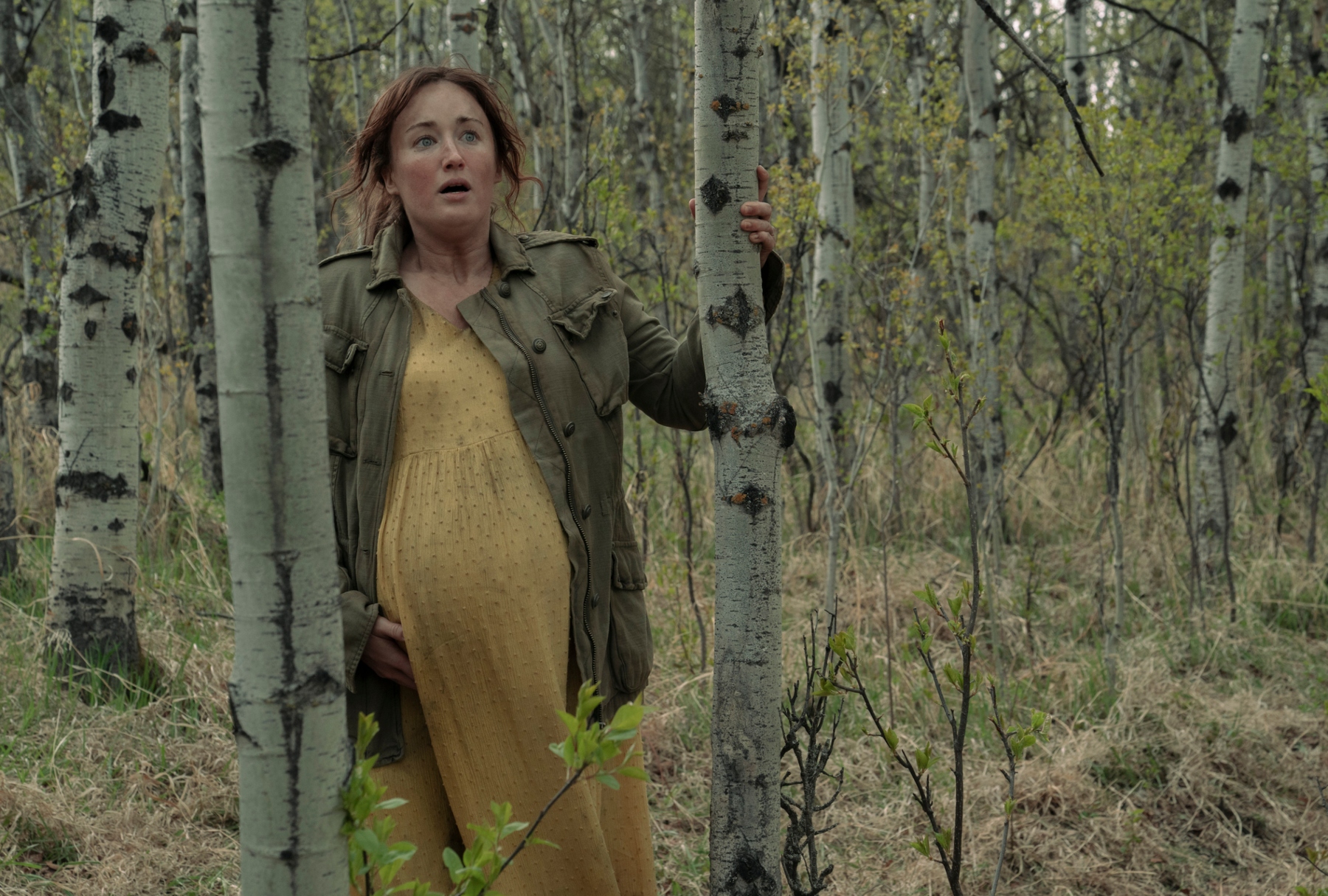 Ashely Johnson in “The Last of Us” (HBO)
Ashely Johnson in “The Last of Us” (HBO)
“Look for the Light” proves some disappointments work out for the best, since the sequence enrichens Ellie’s story and transforms how we view Marlene (Merle Dandridge), the Fireflies’ leader . . . and Anna’s best friend.
Mazin was amazed by the similarities between Ramsey and Johnson once he met the original voice of Ellie. “Ashley sounds like Ellie, and Ellie sounds like Ashley. So [Johnson’s] already this . . . quasi-mythological creature to me,” he said. “And to see her giving birth to herself, in a sense, and to create that genetic connection between her performance as Ellie, and the origin story of Bella as Ellie, was just profound. I think everybody just felt something beautiful about it.”
Tragic, too. The finale launches with a breathtaking sequence of Anna fighting off a zombie – the creators confirmed they have no issues with people using the Z-word, by the way – while she’s in labor. But she has already been bitten, making it too late for her. Not for the newborn Ellie, whom Marlene takes after she finds Anna. That scene is remarkable for compressing much of Ellie’s lineage within a small space. Marlene swears to protect Ellie. Then Anna hands Marlene her switchblade to give to Ellie, the only inheritance she can pass her child other than her fighting spirit and immunity to a deadly, incurable fungus.
That layers additional calamity upon the ending of Joel and Ellie’s cross-country odyssey. Joel is finally ready to be a father figure to Ellie as they arrive at the fabled Firefly hospital . . . only to be knocked out by a concussion grenade and parted from her. Marlene greets Joel when he awakens, and breaks it to him that since the Cordyceps fungus grows in the brain, the only way to obtain the cells needed to create a vaccine is to kill Ellie.
Marlene accepts that sacrificing her best friend’s kid may be the only way to save humanity. Joel doesn’t, choosing his girl over saving the world. He overpowers two armed Firefly soldiers and mows down a hospital’s worth of others, including the doctor about to operate on Ellie.
When she wakes up in the back seat of their car, Joel lies that the Firefly scientists concluded there is no cure, so they’re heading back to Tommy’s commune in Jackson. The last demand Ellie makes of Joel as they hike the final stretch to Jackson is to swear to her that everything he said about the Fireflies is true. He looks her dead in eyes and says, “I swear.”
But we view the truth and the final, worst sin Joel commits in Ellie’s name: He kills Marlene in cold blood, even after she begs for her life, justifying it by saying if he doesn’t she’ll simply send more soldiers after them.
It’s a poignant, painful setup for Season 2 – or, as gamers know it, “The Last of Us Part II.” The creators have been readying themselves for it since the first season was greenlit. “I felt like we can’t just make a season of television without considering what would come after,’ Mazin said. “There is more ‘The Last of Us’ to come.”
Given the extensive discussion and dissections of each episode, people may wonder how Druckmann and Mazin will shape the next chapter, whose plot is established in a sequel released in 2020. They answered some of those questions while providing additional insight into the creative decisions that stood out in the finale.
Here are a few significant highlights.
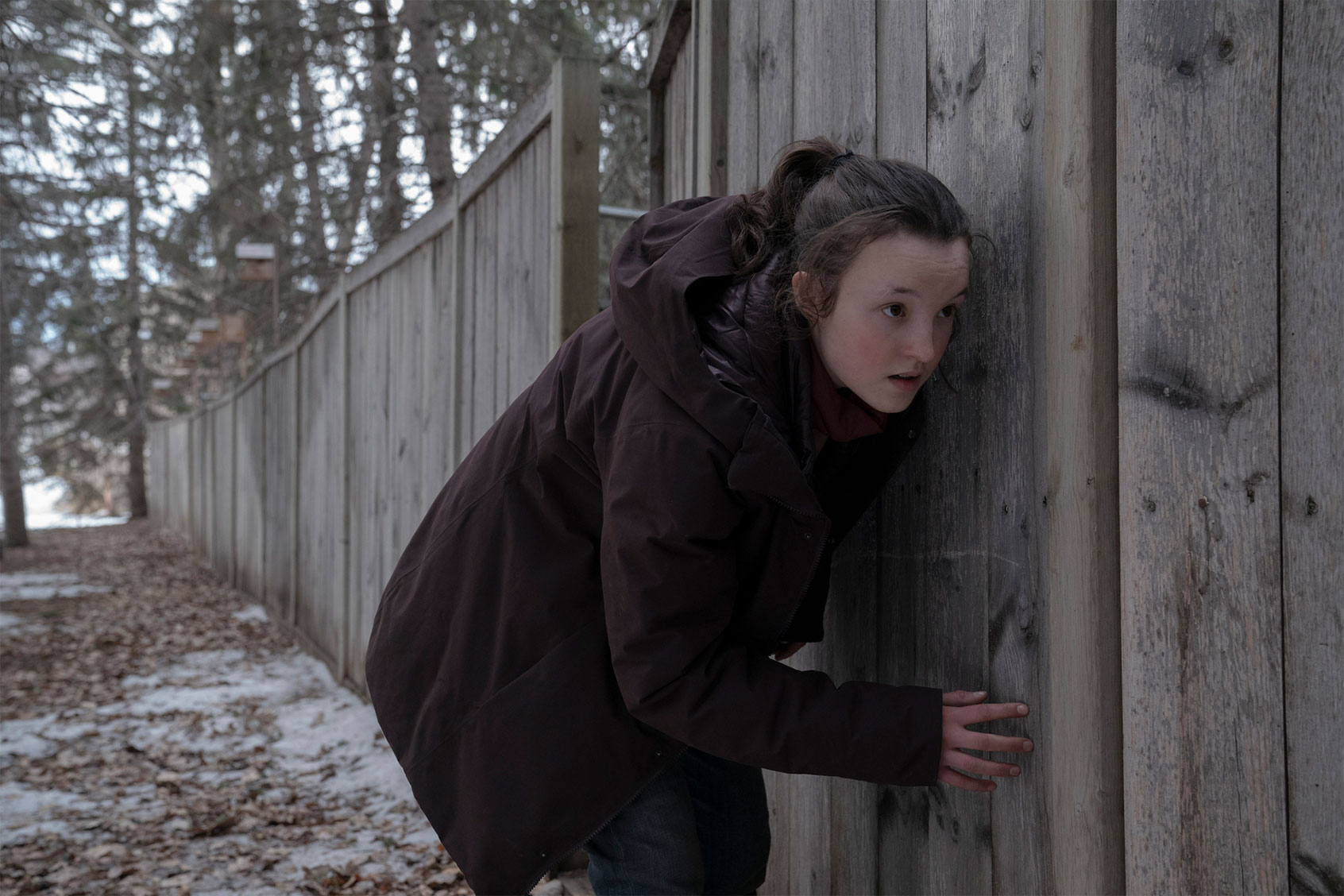 The Last Of Us (Liane Hentscher/HBO)laceholder
The Last Of Us (Liane Hentscher/HBO)laceholder“She’s in a very experimental process to accelerate her aging. She’s smoking six packs of cigarettes a day on a pure whiskey and tainted beef diet,” Mazin joked before reminding us that Ramsey is 19 right now and will be at least 20 years old by the time the new season premieres.
“You know, people were like, she doesn’t look like the character,” Mazin recalled. “I [said] it doesn’t matter. Watch. Just watch what happens. Just watch! And now they know.”
Nevertheless, he acknowledges the “constant drumbeat of anxiety” concerning the extent to which the series’ creators will honor the source material. “Just know I am also very anxious,” he said. “If you’re anxious about something, I’m probably anxious about it, which means we’re talking about it and thinking about it. And we will present things that will be different . . . Sometimes it will be different radically, and sometimes it will be barely different at all. It won’t be exactly like the game. It will be the show that Neil and I want to make. But we are making it with Bella.”
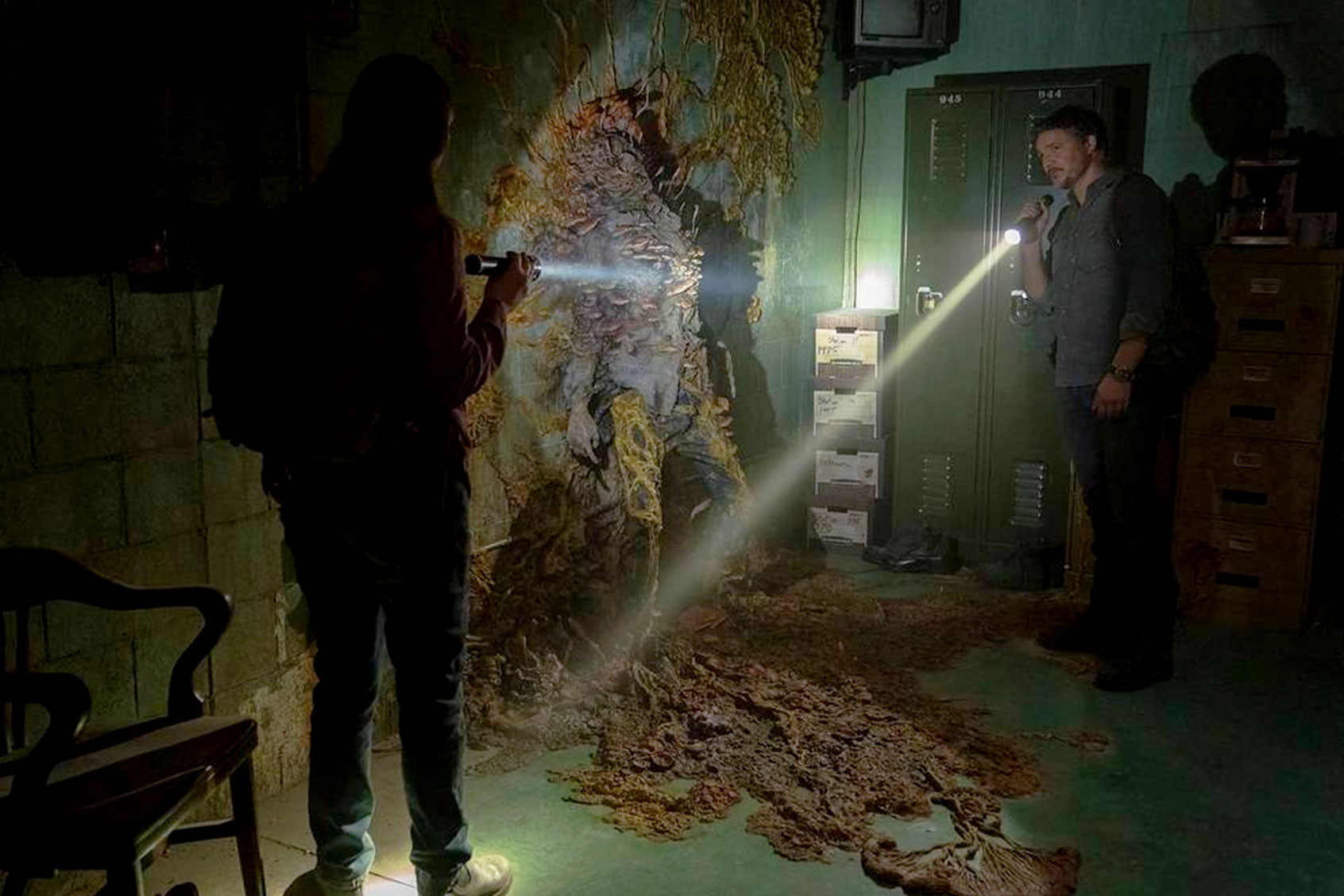 Anna Torv and Pedro Pascal in “The Last of Us” (Liane Hentscher/HBO)er
Anna Torv and Pedro Pascal in “The Last of Us” (Liane Hentscher/HBO)er“The superficial details are not necessarily what I believe players want,” he continued, “They want to have the same kind of experience of the feelings that game made them feel. They want to somehow replicate that experience while watching it.”
Mazin believes the fact that people thought certain episodes were almost a one-to-one reproduction of the game when in reality, almost nothing in that episode was in the game proves the necessity of valuing the original game’s “soul.”
“You cannot adapt video games from a place of cynicism, commercialism, pure numbers. The most popular video games in the world have nothing to offer in terms of character really. . . .You have to create character, and that’s really hard to do,” Mazin said. “And so finding the things that feel adaptable and then loving them, and then recreating that essence, that’s how you get people saying, ‘Oh my god, it’s just like the game.’ It’s not. But it is.”
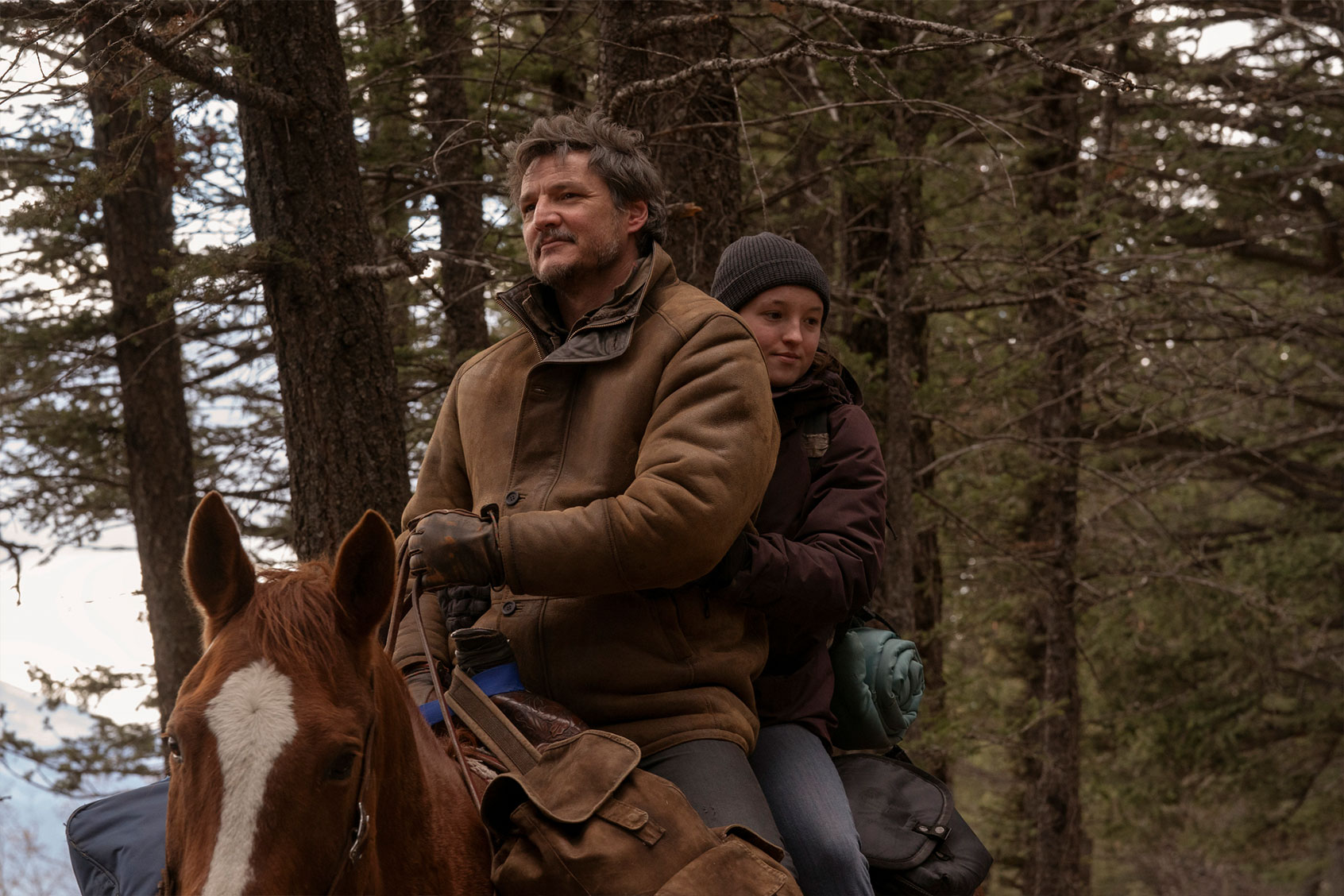 Pedro Pascal and Bella Ramsey in “The Last Of Us” (Photograph by Liane Hentscher/HBO)placeholder
Pedro Pascal and Bella Ramsey in “The Last Of Us” (Photograph by Liane Hentscher/HBO)placeholderBut the co-creators stress any associations one may be tempted to make in that regard are superficial at best. And although they stress that there’s plenty of “Last of Us” to be written beyond the games’ plots, introducing Ellie’s biological father isn’t part of that plan. As far as Mazin is concerned, that role will always belong to Joel.
“The whole process is about how difficult it is to let somebody else in when you’ve closed that door off and nailed it shut forever,” he explained, referring to Joel’s grief over having lost a daughter as a space. “But Ellie doesn’t have any of that. That door is open. That room has never been occupied. And Joel just gets in there almost immediately. . . . I like the idea that the room is open and empty, and even we don’t know anything about it. That’s kind of interesting.”
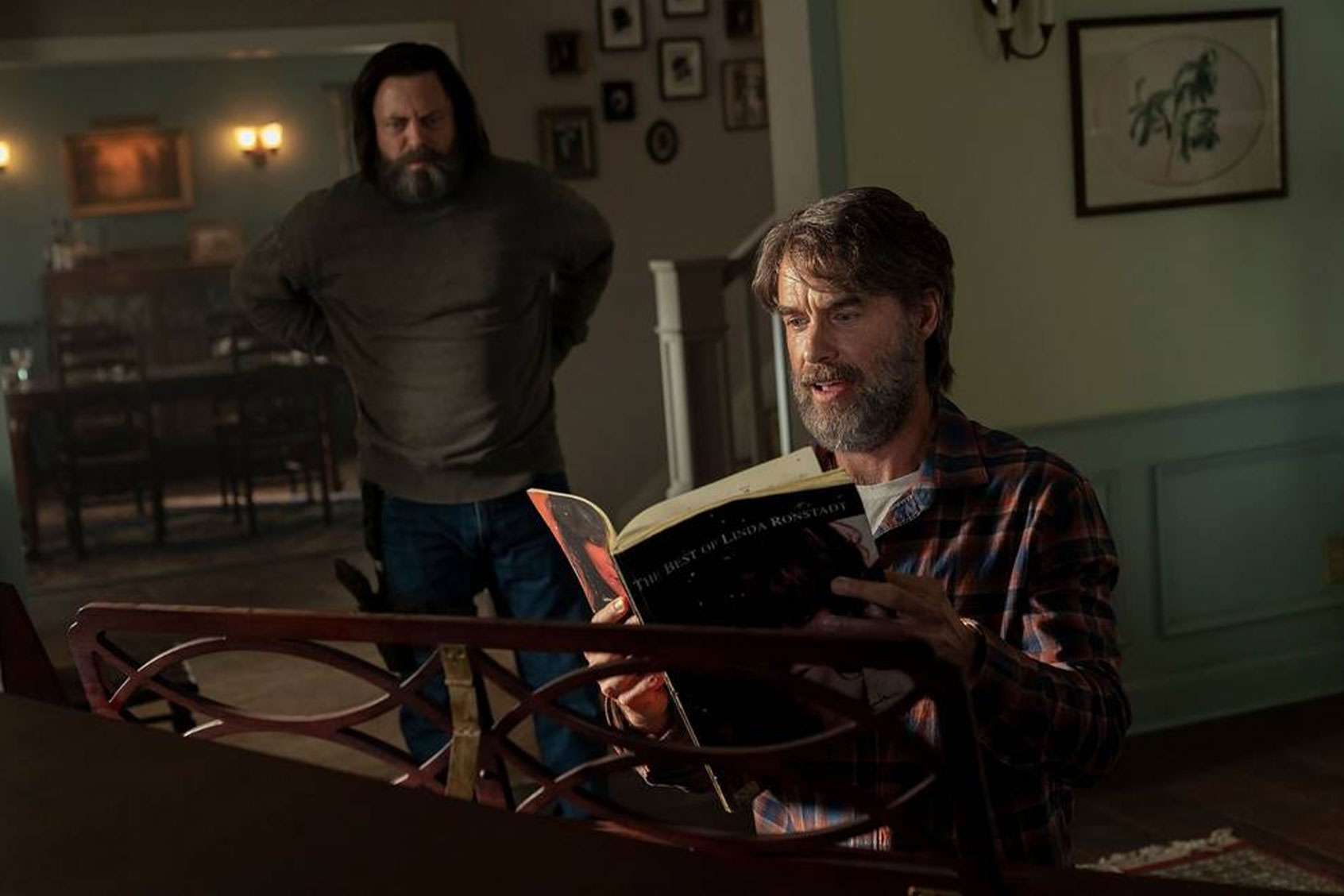 Nick Offerman and Murray Bartlett in “The Last of Us” (Liane Hentscher/HBO)der
Nick Offerman and Murray Bartlett in “The Last of Us” (Liane Hentscher/HBO)derWant a daily wrap-up of all the news and commentary Salon has to offer? Subscribe to our morning newsletter, Crash Course.
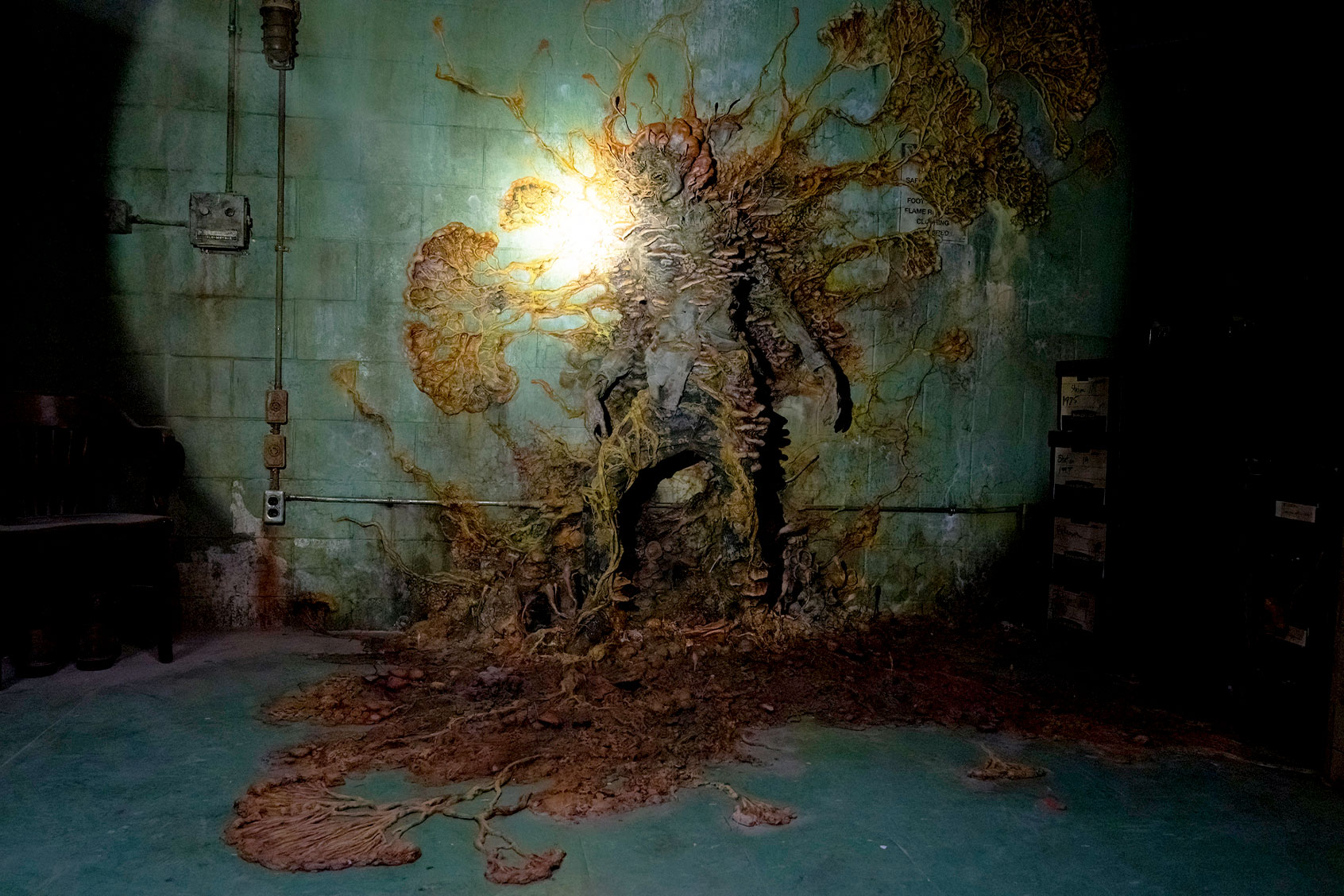 The Last of Us (Liane Hentscher/HBO)Image_placeholder
The Last of Us (Liane Hentscher/HBO)Image_placeholderMazin agreed, then said, “I’ll give one other thing I think the world is infected with. And it’s a bit ironic. I think the world is infected with narrative.
“As a storyteller, what I see around me is that the people who are supposed to be telling the truth are in fact telling stories. Everybody – politicians, journalists, everybody seems to be organizing their points of view into stories that they can sell you,” he continued. “. . . And by narrativizing everything, we are losing touch with the simple, unvarnished, modest truth of things.
“At least I sleep well at night, knowing that the story that we’re telling here is proudly and loudly labeled as fiction,” he finished. “But everybody else? Facts first would be best.”
All episodes of “The Last of Us” are currently streaming on HBO Max.
Read more
about “The Last of Us”
